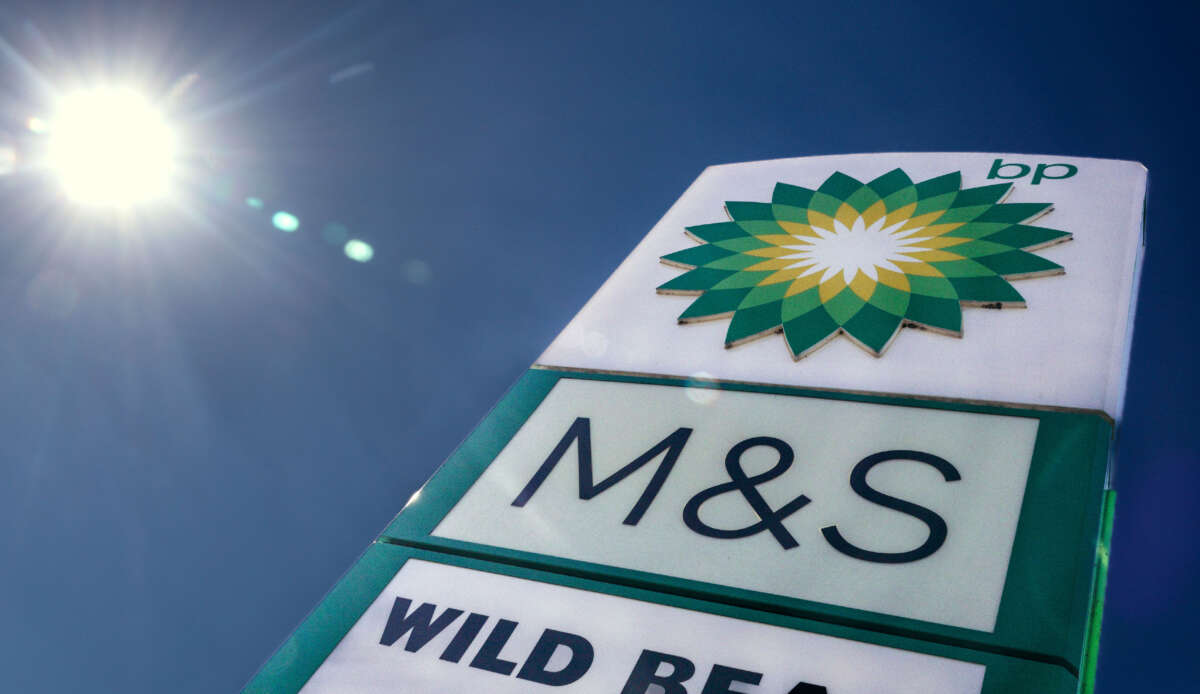Truthout is an indispensable resource for activists, movement leaders and workers everywhere. Please make this work possible with a quick donation.
The London-based oil giant BP reported second-quarter profits of $2.6 billion on Tuesday and announced a 10% dividend raise for shareholders on the heels of what was likely the hottest month on record — a grim milestone that scientists say was made possible by the burning of fossil fuels.
While BP’s profits for the second quarter of 2023 were far lower than the massive $8.5 billion it logged during the same period last year — a drop caused by falling global oil prices — the company has still raked in $7.6 billion in profits so far this year. The company has paid out those profits to investors in the form of share buybacks and dividends.
BP said in its earnings announcement that it will repurchase another $1.5 billion worth of its shares over the next three months.
“In 2021, BP’s CEO described his company as a ‘cash machine’ after soaring oil and gas prices boosted profits,” Jonathan Noronha-Gant, a senior campaigner at Global Witness, said in a statement Tuesday. “Nearly two years on, and BP is riding the wave of the energy crisis, and handing huge sums of money to its shareholders while the U.K.’s poverty rates spiral.”
“This is what a broken energy system looks like — oil giants get richer because the rest of us get poorer,” Noronha-Gant added. “For BP the energy crisis has been a giant cash grab; for parents across the country it has been an impossible choice between feeding their children and paying their bills.”
BP’s earnings report comes after its rival, Shell, posted $5.1 billion in second-quarter profits last week and announced a dividend boost of 15% amid a deadly global heatwave.
Nicolò Wojewoda, Europe regional director at 350.org, said Tuesday that “you would think that those most responsible for the hottest month in recorded human history are being held accountable.”
“Think again — fossil fuel companies, instead of facing consequences, continue being rewarded with record-breaking annual profits, having cashed in more than $200 billion in 2022 alone,” said Wojewoda. “Fossil fuel industry profits are soaring alongside the rise in global temperatures they’re responsible for. This must end now. We must hold them accountable for the damage they’ve inflicted, making them pay for it and phasing their dangerous influence out of existence.”
On Monday, a group of U.S. lawmakers led by Sen. Bernie Sanders (I-Vt.) urged the Biden Justice Department to sue fossil fuel companies for leading “a decadeslong, carefully coordinated campaign of misinformation to obfuscate climate science and convince the public that fossil fuels are not the primary driver of climate change.”
BP knew about the link between fossil fuels and climate change for years before it began publicly acknowledging the connection and styling itself as a renewable energy leader — a posture it has since abandoned.
Like Shell and other oil giants, BP recently walked back some of its stated emission-reduction targets and announced plans to produce more fossil fuels than previously expected. Earlier this year, BP said it intends to cut fossil fuel production by 25% below 2019 levels by decade’s end instead of its previous goal of 40%.
Dorothy Guerrero, head of policy and advocacy at the U.K.-based group Global Justice Now, said in response to Tuesday’s earnings results that “once again BP has raked in hideous profits as our planet burns.”
“From people struggling with the cost of living in the U.K. to communities on the frontline of climate disasters in the Global South, we are all footing the bill for the reckless profiteering of the fossil fuel industry,” said Guerrero. “Enough is enough. The government must stop turning a blind eye as shareholders line their pockets at our collective expense. It’s time to bring in a permanent polluters’ tax to hold BP and other fossil fuel companies to account for the damage they continue to wreak.”
“Leaving this industry with the power to profit without consequence,” Guerrero added, “is not only morally abhorrent — it’s plainly ludicrous in the face of a climate catastrophe that threatens us all.”
A terrifying moment. We appeal for your support.
In the last weeks, we have witnessed an authoritarian assault on communities in Minnesota and across the nation.
The need for truthful, grassroots reporting is urgent at this cataclysmic historical moment. Yet, Trump-aligned billionaires and other allies have taken over many legacy media outlets — the culmination of a decades-long campaign to place control of the narrative into the hands of the political right.
We refuse to let Trump’s blatant propaganda machine go unchecked. Untethered to corporate ownership or advertisers, Truthout remains fearless in our reporting and our determination to use journalism as a tool for justice.
But we need your help just to fund our basic expenses. Over 80 percent of Truthout’s funding comes from small individual donations from our community of readers, and over a third of our total budget is supported by recurring monthly donors.
Truthout has launched a fundraiser to add 379 new monthly donors in the next 6 days. Whether you can make a small monthly donation or a larger one-time gift, Truthout only works with your support.
